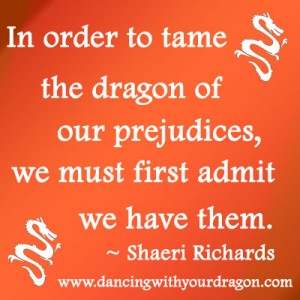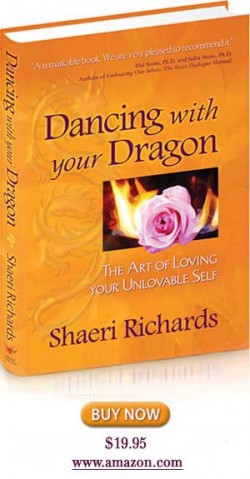 When we’re blinded by fear, it’s difficult to recognize truth. When fear takes over our hearts, trust disappears and along with it the ability to experience happiness, peace and joy.
When we’re blinded by fear, it’s difficult to recognize truth. When fear takes over our hearts, trust disappears and along with it the ability to experience happiness, peace and joy.
I was prompted to write this post by the convergence of a couple stories in the national media and a spate of burglaries that happened in my normally crime free town of Sedona, AZ. First there’s the story of Trayvon Martin, the young black man shot to death by a neighborhood watch volunteer in a gated community for the great crime of walking down the street with a bag of skittles and and an iced tea. Then NPR ran a story about a study indicating that voters tend to support or reject the president’s health care reform package based on racial attitudes. Next I was chatting with a neighbor and he told me how he was keeping an eye on any workers coming in and out of our neighborhood to make sure none of them appeared to be casing houses with the intent of coming back to rob them later. For me, each story brought to mind a common theme. We become suspicious and fearful of others when we pre-judge them, when we have prejudice about who and what they are based on our unconscious attitudes and inbred fear.
In the instance of Trayvon Martin, the shooter (George Zimmerman) describes Trayvon as “suspicious” in a 911 call, simply because he was a young black male walking down the street wearing a hoodie. There had been a series of burglaries in his Sanford, Florida neighborhood and as a neighborhood watch volunteer, Zimmerman was on guard. But Trayvon, it turns out, was visiting his Dad’s fiance in this multi-racial neighborhood and had just walked down to the convenience store to get a snack. There was nothing dangerous about him; he was not armed, had no criminal record and no previous trouble with the law. Because he was unfamiliar to Mr. Zimmerman and appeared “suspicious,” he is now dead. This is a complicated story that brings up many issues for many people, but I would just like to pose this question: What if Zimmerman had not been, suspicious and afraid? What if he had left his gun at home, taken the time to approach the young man in a friendly fashion, and simply said, “I’m a neighborhood watch volunteer and I’m just wondering what brings you to the neighborhood?” The outcome would likely have been very different.
I found the NPR story to be both eye-opening and disheartening. (You can listen here.) It was based on a study by social scientist Michael Tesler. The results of his study show that people tend to favor or oppose health care policy based on racial attitudes. The premise seems pretty simple. Tesler took a single piece of health care legislation and presented it in two different ways. Some respondents were told that the legislation was proposed by President Bill Clinton. Others were told that it was proposed by President Obama. The results were pretty astounding. It seems that responders who admitted to being racially conservative tended to oppose the legislation when they were told it was proposed by Obama, but they supported it when told it was proposed by Clinton. Remember, it’s the exact same piece of legislation, and both Presidents are democrats. The only variable is their difference in race. When we look at life through the filter of our prejudices, we just don’t see things clearly.
I’m as guilty as anyone of falling into unconscious prejudgment. I live in the lovely town of Sedona, Arizona near the trail head for a popular Sedona hiking trail. Tourists are always driving up and down our street either headed for the trail, or just checking out the beautiful red rock views. Even so, the day after I learned of the burglaries (one of which happened on my street) I was driving up the road when I passed a man sitting in a car parked in front of a neighbor’s house. I noticed in my rear view mirror, that he pulled out and turned onto a side street just as I passed him. To my chagrin, I found myself doing a U-turn and attempting to follow him. A moment later he reappeared on the main drag having driven a circular side street. Just another tourist enjoying the views in the hood. Like I said, when we’re blinded by fear, it’s difficult to recognize truth.





